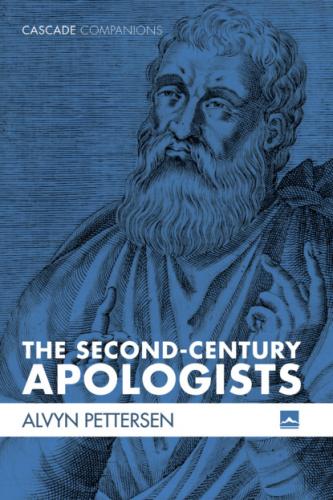Given this variegation between the several writers, their contexts, audiences, and arguments, this book then further assumes that making comparisons between this and that Apologist and building a sense of theological development or evolution in thought from one Apologist to another is hazardous.
This book further aims to draw the reader’s attention to any missional aspects in the writings of the different Apologists. It is argued that, in addition to (i) mounting defenses against what the Apologists saw as false charges and to (ii) maintaining that Christians were a help, and not a hindrance, to establishing and preserving the empire’s peace and well-being, the Apologists were also concerned that (iii) their writings might be instruments by which those who as yet did not trust fully and wholly in the One whom they believed to be the only, true God might be brought to such a trust. So, descriptions of the Christian lifestyle were penned, not just to allow the readers to conclude that Christians were innocent of charges of immorality but also to allow reflective non-Christians to turn from all ungodly practices and to turn to walking in the ways of the one and only holy God. For some of these Apologists, such was their urgent sense of the need to prompt the conversion of Christianity’s critics that they did not flinch from warning of the dire and eternal punishment to be meted out in the End-time to those who were still inimical towards both God and God’s creatures. Indeed, not to issue such warnings was considered “beyond the pale.” In short, the concern of a number of these mid-to-late second-century Apologists was the well-being of not only Christians falsely accused but also those who falsely accused Christians.
1. Athenagoras, Plea, 1.3.
2. Dio Cassius, Epitome, 67.14. This literary evidence does not, however, prove that Flavius Clemens was a Christian, and, although Christian tradition counted Flavia Domitilla a Christian, the evidence for her being so is not clear. What is clear is that, from c.150 onwards, Christians built a cemetery on land that once had belonged to Flavia Domitilla.
3. Pliny, Letters, 10.96. See also Letters, 10.97.
4. Pliny, Letters, 10.96.
5. Pliny, Letters, 10.96.7.
6. Pliny, Letters, 10.96.7.
7. The Martyrdom of Polycarp, 3.2.
8. The Martyrdom of Polycarp, 9.2.
9. Justin, Apology, 2.2.
10. Martyrdom of Justin and His Companions, 4.
11. Justin, Apology, 1.5.
12. Justin, Apology, 1.6.
13. The Letter of the Churches of Lyons and Vienne, 9.
14. The Letter of the Churches of Lyons and Vienne, 52.
15. The Letter of the Churches of Lyons and Vienne, 14.
16. Tertullian, Apology, 50.
17. So Basilides, fl.140, taught. See Eusebius, Ecclesiastical History 4.7.7.
18. Kelly, Early Christian Doctrine, 95.
19. Grillmeier, Christ in Christian Tradition, 106.
20. Rhee focuses on Apologies, Apocryphal Acts, and Martyr Acts.
21. Athenagoras, Plea, 3.1—4.1.
1
The Second-Century Greco-Roman World
The second-century Greco-Roman world, generally speaking, was one of confidence, peace, and prosperity. “Wars,” Aelius Aristides of Smyrna wrote in c.145, “have so vanished as to be but legends of the past.”1 “A person travels,” he continued, “from one country to another as though it were his homeland.”2 These reflections may, of course, be not wholly true. For they may well contain an element of flattery, having, at least nominally, been addressed to the emperor Antoninus Pius. Yet they are neither unparalleled nor out of keeping with what was generally acknowledged to be the case then.
Peace and prosperity in the Empire
Certainly the early second-century empire was sufficiently confident and at ease with itself that it was able to tolerate irritating minorities such as Stoic philosophers and Christians. The emperor Trajan [98–117], commenting, for example, on the anonymous denunciations of Christians by inhabitants of the province of Pontus, maintained that such denunciations were “not in keeping with the spirit of the age.”3 Nor had the situation changed that much by the 170s when, in his Plea, the Christian Apologist Athenagoras wrote of the emperors Marcus Aurelius’s and Commodus’s humanity shown to all, of the equality of everyone before
